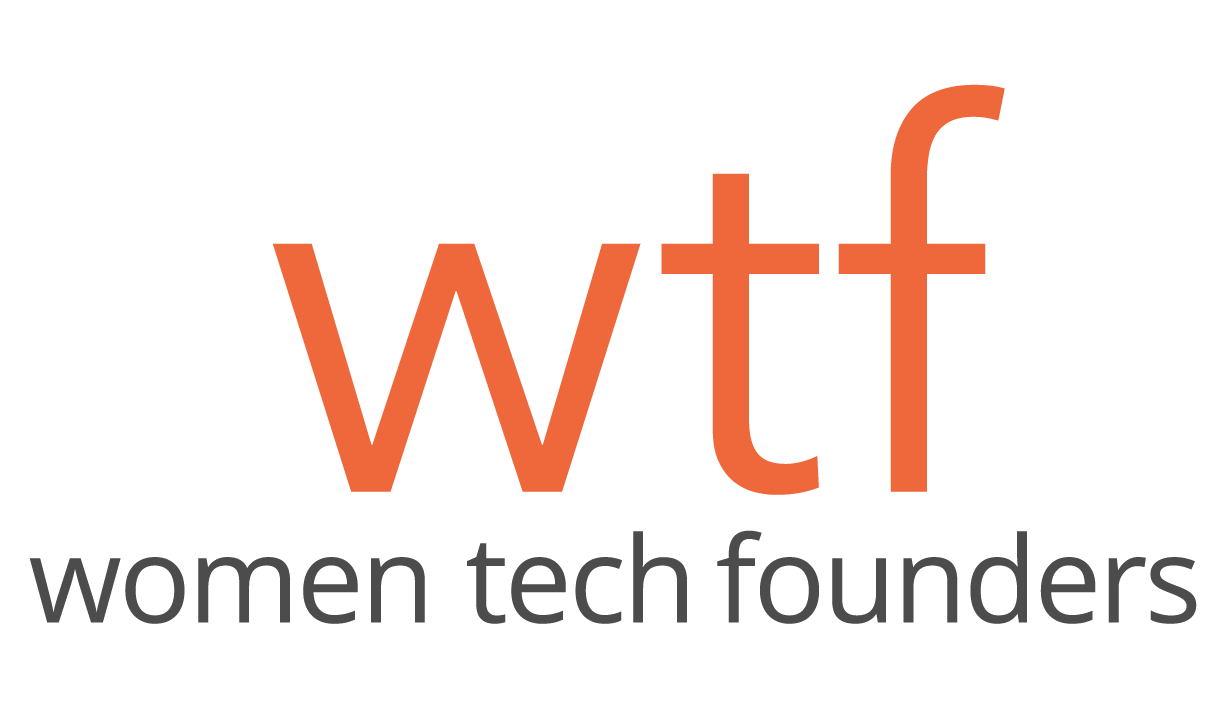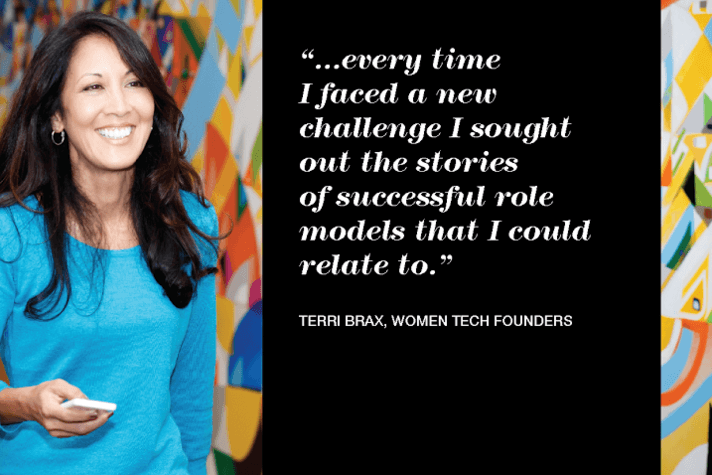Article written by FW Magazine
WomenTechFounders (WTF) is a media and networking organization for women founders and leaders of tech startups. WTF highlights the stories and lessons of female led tech role models. Terri Brax is the cofounder of WTF and founder of TeacherCare Inc., a nationwide agency.
She will be moderating the series of conversations with local tech insiders in each issue for 2016.
Women Tech Founders tells stories about strong female leaders in the technology industry. Why does this matter to you?
Stories and role models always made a big difference in helping me overcome challenging situations. My mom was a concentration camp survivor in Siberia. She lost her family and spent her teen years living underground with the dead and dying. My mom never gave up fighting for her life, even as cancer finally took her, and she contributed to the world until her last weeks. Growing up listening to my mom’s stories gave me a lot of grit, and it’s served me well. As I got older, every time I faced a new challenge I sought out the stories of successful role models that I could relate to; stories that would help me understand how to best move forward. This helped me be the first person in my family to get a college education, create and run a nationwide business, and to grow my own family. But, when I dove into the tech industry—an industry I knew had more power than any other in the world—I found it a challenge without role models I could relate to. Industry spotlights focused almost exclusively on white males. Books held up as bibles of the industry and “founder stories” failed to include women or other marginalized groups. It took me a long time to find female role models in tech, but when I finally heard their stories, I knew other women would want to hear them, too. Then one morning over coffee it hit me— the collective effect of what these women in tech could bring the world would change the balance of power. This past January, WTF became a grassroots platform to tell Women’s Founder Stories and create diversity in the industry. Overnight, hundreds of other founders and aspiring founders joined to help us start a movement. Through video and networking events, WTF features female startup success stories and lessons. We aim to inspire all women to overcome barriers and share their potential with the world.
How are girls’ and women’s confidence in STEMrelated studies being indirectly undermined in school and in the professional arena?
There are too many negative stereotypes about women in tech. The media often portrays them as mousy or boring. That’s the wrong message to move women forward, and that needs to change. The real female leaders in tech that I know are passionate women who are building something they believe in. And while it’s often the hardest thing they’ve done, they’re a pretty badass group and will break down walls to make their work come alive. These women often face a difficulty in life that they overcome, like Katie Hench, who had a brother with autism and created Infiniteach, an app based platform to help kids with autism learn. Or Roya Mahoob, who’s helping thousands of Afghan women learn to code and connecting them with jobs around the world. Or Dana Oswald, previously a U.S. Marine, who helped create the Wounded Warriors program and now runs a placement agency for vets interested in working in the tech industry. Just to name a few of our local heroines. Girls need to see successful role models like Katie, Roya, Dana, and others who they can relate to. Someone who looks like them and can show them a new side of what success can look like.
Aside from having a broad range of voices at the table, in what other ways does having true diversity benefit the tech industry?
Diverse experiences create diverse solutions for diverse problems. Women, for example, see opportunities men may never see, fully understand, or appreciate. The silver lining is that, because so few women are in technology, there are many untapped opportunities for women to create unique and important ways to capitalize on their insights. In addition, diverse leadership makes economic sense. Womenled private tech companies are more capital efficient and achieve a 35 percent higher return on investment. Having leaders with differing experiences also brings other advantages. Women leaders, for example, bring emotional intelligence and broadened perspectives. AsI’m writing this article, Oliver Stahl of Tribe.do, a hot new Chicago based startup, tapped me to introduce him to a motivated woman for a fulltime position. I asked him for the job description, and he told me, “We’ll create one based on the women. At my last startup, I saw the benefit of adding our first female coworker in ways I didn’t expect. We grew as a company, views were broadened, and work became even more focused. Adding a female employee helped our team grow, literally, but also strategically. We added another, unique view with a perspective that we only benefited from. I know we benefited from it. Our company is dedicated to creating a diverse team.
How does WTF help bridge the gap and bring more women to tech?
There have been a lot of negative conversations about women in technology, including conversations about sexism and discrimination. We’re changing conversations by spotlighting the amazing—the women in tech who are rocking the world. Women who, while building a great life for themselves, are building others up. We want girls and women to know that they can use tech to build their dreams and improve the world. And they belong in tech. WTF is the intersection of Startup Secrets and Life Lessons. Building a startup is incredibly hard. The war stories we’ve heard and the lessons we’ve learned carry over into leadership and life. We’re using our video and event platform at WomenTechFounders.com to reach out and empower women. We also break common myths, like everyone in tech has to be “technical” to work in the field, or that coders aren’t creative.
Why do you think that Chicago has become such fertile tech startup territory?
Chicago has an amazing payitforward culture. No one I know created a tech business alone. We all had the help of someone who took some extra time, who encouraged us, or who had our back when we needed it. Startup life is rugged, and that kind of support when you hit a wall or fall down completely (which is a part of startup life) makes all the difference in success and failure. The past few years in Chicago tech have been exciting. The city’s growing a reputation as a unique hub in technology. We don’t dominate one industry—think NYC and fashion tech. We’re spread across industries, including education, healthcare, agriculture, “things,” biometrics, and more. Today, in Chicago, no matter what your passion is, you have local resources to geek your dream and make it matter. And Forbes just named Chicago the world’s leader for female founded tech startups! This means the difficulties women faced even a year ago have been reduced dramatically, and we have the amazing opportunity to be role models for women in tech leadership around the world. At no other time in history, have women had an opportunity to take their stake in the power that’s driving the world like we do now. And technology is fueling that power. I can’t wait to share the stories of Chicago’s women tech founders and leaders!
Terri Brax is the Creator and Co-Force behind Women Tech Founders and TeacherCare. Her passion is advancing those around her.

